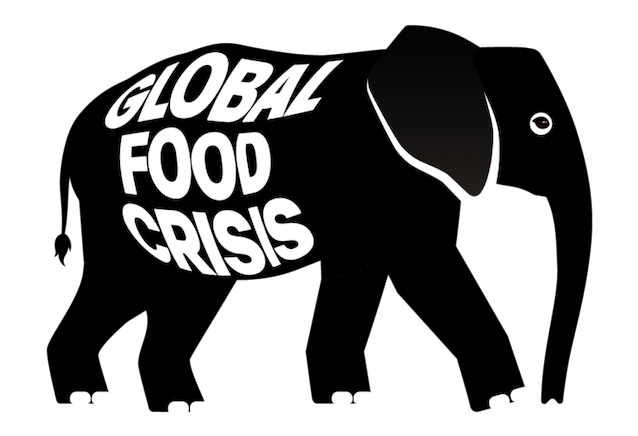
‘Elephant in the Room’ campaign calls for urgent action on global food crisis at upcoming UN meetings
Climate activists and anti-poverty campaigners are calling for an emergency meeting of world leaders on the global food crisis at the United Nations General Assembly in New York next month.
With 735 million people going hungry, 122 million more than in 2019–before the COVID pandemic, the ‘Elephant in the Room’ campaign says the food crisis is being overlooked by world leaders, with devastating consequences.
An open letter to world leaders, signed by supporters including climate activist Vanessa Nakate, award-winning farming advocate Wangari Kuria, musician and philanthropist Octopizzo, SDG Advocate Richard Curtis, and US celebrity chef Andrew Zimmern, says:
“You know there is a global food crisis. You are ignoring it in your budgets. You do not address it enough with the media. It is not high on your agenda for the G20, UNGA or COP28. And so it remains an elephant in the room.
“As leaders, you have allowed this emergency to unfold. The solutions to end the food crisis exist. It is your responsibility to lead the world out of disasters, not compound them.”
The global food crisis is caused by a combination of conflict, climate change, rising food prices and the punishing debt burdens faced by many poorer countries, 21 of which now face catastrophic levels of debt distress and food insecurity. An emergency high-level meeting at the UN General Assembly is needed. This would mean heads of state coming together to discuss the crisis and its solutions, and committing to action, the campaigners said.
“Admitting the scope of the problem is the first step towards solving it,” said Rev. Eugene Cho, president and CEO of the U.S.-based Christian anti-hunger organization Bread for the World. “Several countries, including the U.S., have acknowledged there is a problem and taken steps to address it. That is a good start. But it’s not enough to get us out of the crisis. The global food and malnutrition crisis is a climate crisis, a conflict crisis, and a rising costs crisis: it demands a powerful and unified global response.”
A quarter of a billion people face severe hunger (acute food insecurity) the highest recorded in recent years. 3 billion people can’t afford a healthy, nutritious diet.
This year’s United Nations appeals for emergency assistance are only just over a quarter funded, much lower than for the last global food crisis in 2008, and yet there are twice as many additional people going hungry compared to 2008 levels.
“There is nothing inevitable about children dying because they don’t have enough to eat, just as there is nothing inevitable about families in rich countries queuing for food banks,” said climate activist, Vanessa Nakate, “There is nothing inevitable about a food system that cannot withstand shocks from climate change or conflict. There is enough food in the world for everyone.”
“During the last major global food crisis, following the 2008 economic crash, we saw world leaders coming together at the G8 summit in L’Aquila, Italy, to make bold commitments,” said David McNair, Executive Director for Policy at the One Campaign “This year, as we live through a so-called ‘polycrisis’, the food crisis seems to be getting lost, a victim of a siloed approach to tackling the world’s problems.”
Action to tackle the global food crisis should focus on three key elements, the campaign said: saving lives, building the resilience of affected communities to withstand climate and food price shocks, and securing the future by reform of the global food system to make it more sustainable and equitable.
Solutions world leaders should progress at an emergency meeting include:
- Fully funding the UN’s $55bn humanitarian appeals and doubling climate adaptation funding for lower income countries, while also cancelling their debts and reforming the multilateral financial system to unlock vital funds.
- Investing in the smallholder farmers, health workers and communities on the frontlines of the food crisis, including through social protection programmes.
- Fixing the broken global food system by supporting more sustainable farming, diversifying crops, improving nutrition and access to a healthy diet, and reducing food waste.
These measures would break the cycle of crisis and could save the world billions at the same time, campaigners said.
The Elephant in the Room campaign has been launched by Hungry for Action, a campaign supported by over 40 organisations including Save the Children, the ONE Campaign and Global Citizen and is coordinated by the SDG2 Advocacy Hub.
Original source / Image credit: Hungry for Action
